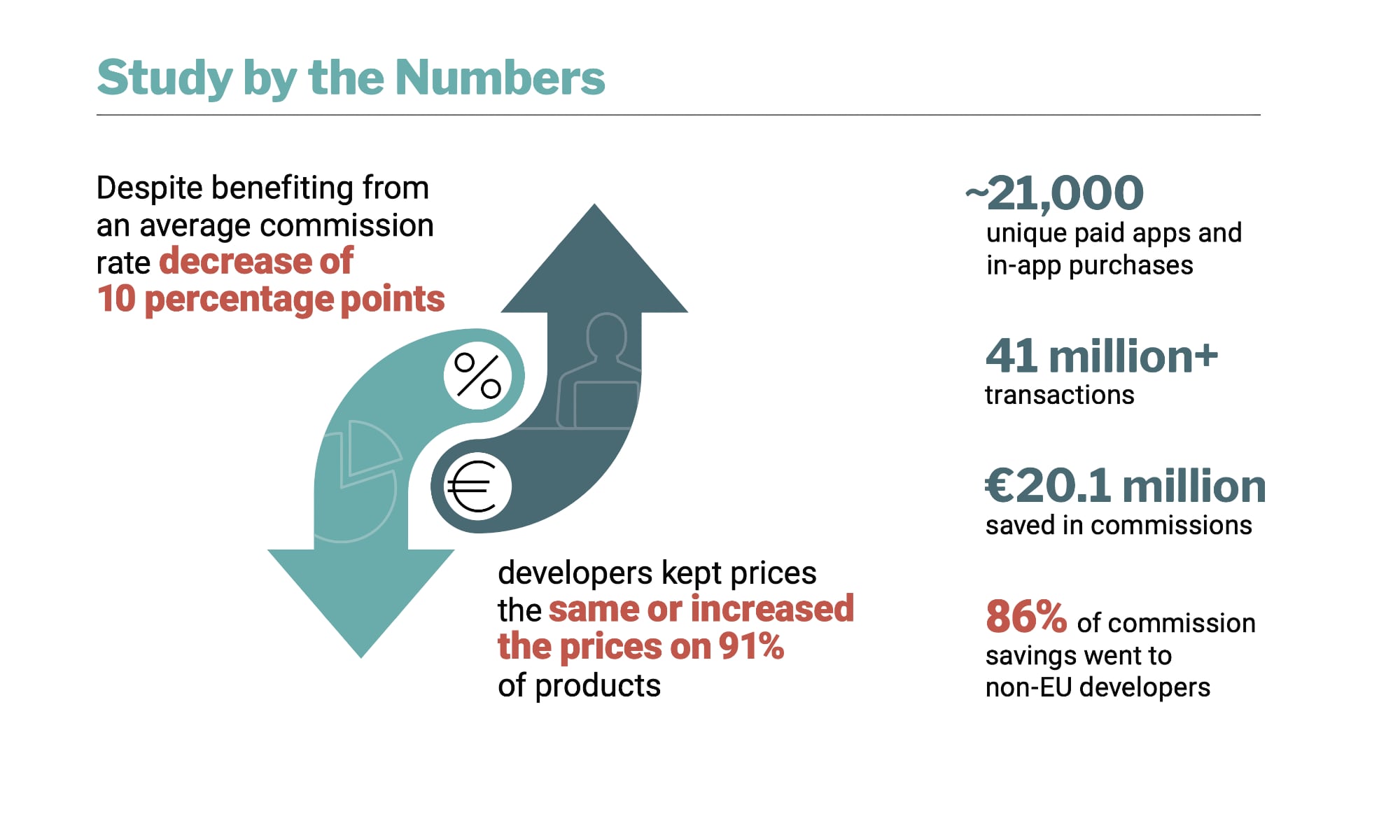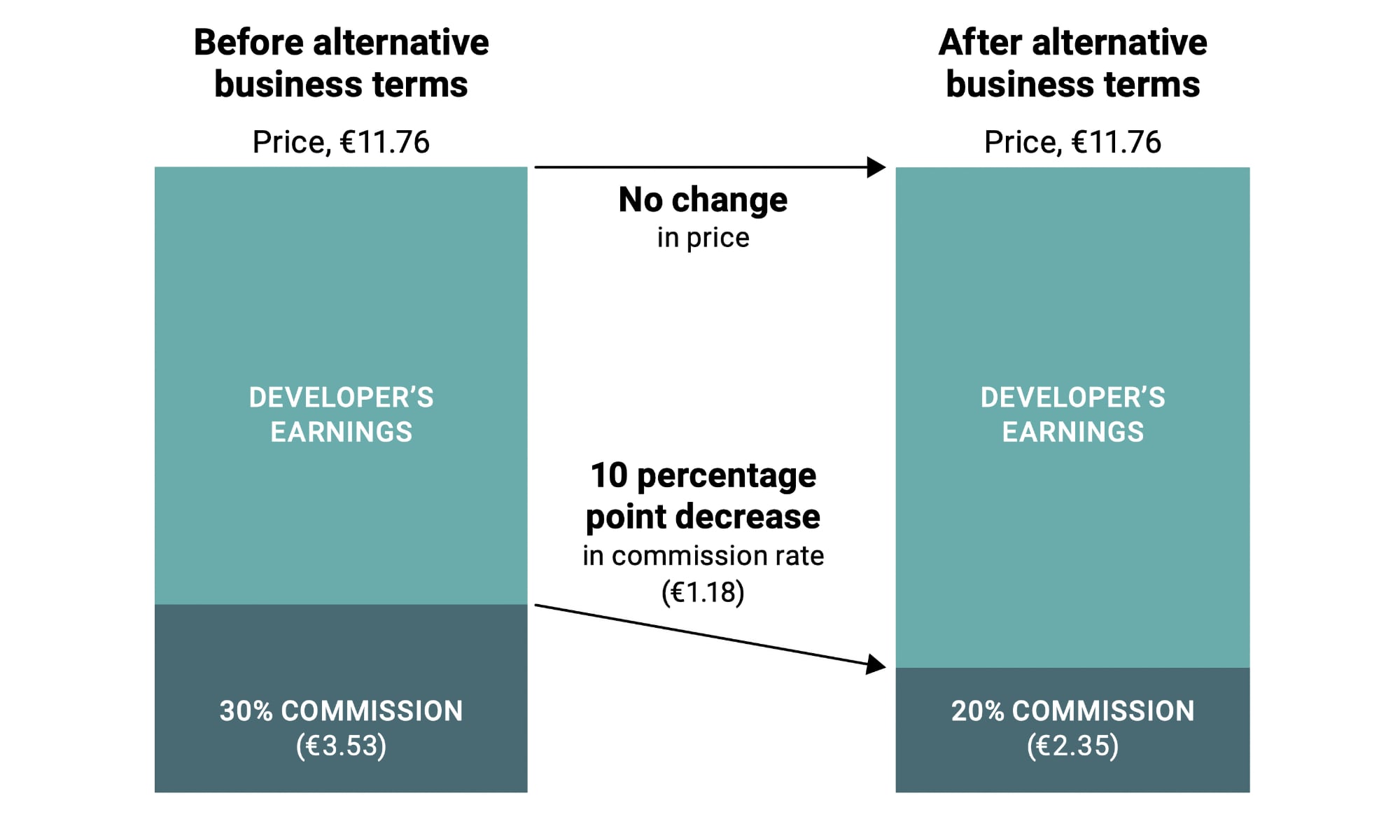Europe’s Digital Markets Act Hasn’t Lowered App Store Prices
 Tada Images / Adobe Stock
Tada Images / Adobe Stock
Toggle Dark Mode
A new Apple-supported study suggests the European Union’s Digital Markets Act (DMA) has not led to any significant changes in app pricing that would benefit consumers.
The study, What Happens to App Prices when Developers Pay Lower Commission Fees?, was authored by Jane Choi of Analysis Group and examined App Store pricing before and after the DMA forced Apple to reduce App Store fees in the European Union in March 2024. After crunching the numbers, Choi concludes that “commission savings as a result of the DMA have not led to price decreases for customers.”
Specifically, Choi’s report claims that while App Store rates typically fell around 10%, saving developers approximately $23.3 million USD in fees, 90% of developers kept their prices the same or raised them. While 9% of developers lowered prices, the number remained roughly in line with pre-DMA trends.
While the report’s cover page acknowledges that support for the study was provided by Apple, it adds that “The conclusions and opinions expressed are exclusively those of the author.” However, it’s also important to note that the study examined only App Store transactions; it didn’t consider pricing through the new channels permitted under the DMA, such as alternative app marketplaces and direct distribution by developers via their own websites.
The Numbers
The Analysis Group study examined 41 million App Store transactions across 21,000 apps and in-app purchases. It compared app prices for the three months preceding developers’ enrollment in the alternative App Store business terms to prices for the three months following their enrollment. While fees dropped an average of 10 percentage points, prices were not reduced 91 percent of the time. In some instances, prices increased after developers enrolled in the new business terms.
The study reveals that the top five EU developers maintained their pricing unchanged, despite paying reduced commissions, retaining the savings instead of passing them on to consumers. Developers paid an estimated 20.1 million euros less in commissions to Apple after the fee structure change.
Further, although the EU was intended to benefit EU developers, more than 86 percent of the savings were enjoyed by developers located outside the European Union.
For the relatively few developers who did lower prices, the average decrease was only 2.5 percent — and these decreases showed no connection to the DMA. The percentage of fee reductions remained unchanged when examining an eight-month period.
The study also notes that while the DMA introduced a Core Technology Fee (CTF) for apps with more than one million annual first-time installs, 80 percent of the apps analyzed didn’t meet that threshold. That means CTF costs weren’t a significant factor influencing whether developers adjusted their prices.
In a statement, Apple told MacRumors that the DMA has not lived up to its promises, as it compromises privacy and security without offering any meaningful benefits for consumers in the EU.
The DMA has failed to live up to its promises, delivering less security, less privacy, and a worse experience for consumers across Europe. This study provides further evidence that the DMA is not benefiting consumers in the form of lower prices. At the same time, we know the regulation is creating new barriers for innovators and startups while exposing consumers to new risks.
Apple
The European Commission has long argued that the DMA would benefit consumers through increased competition, but the study found no evidence that lower App Store fees resulted in lower prices.
For a more in-depth look at the results and the data, read the full study here.









